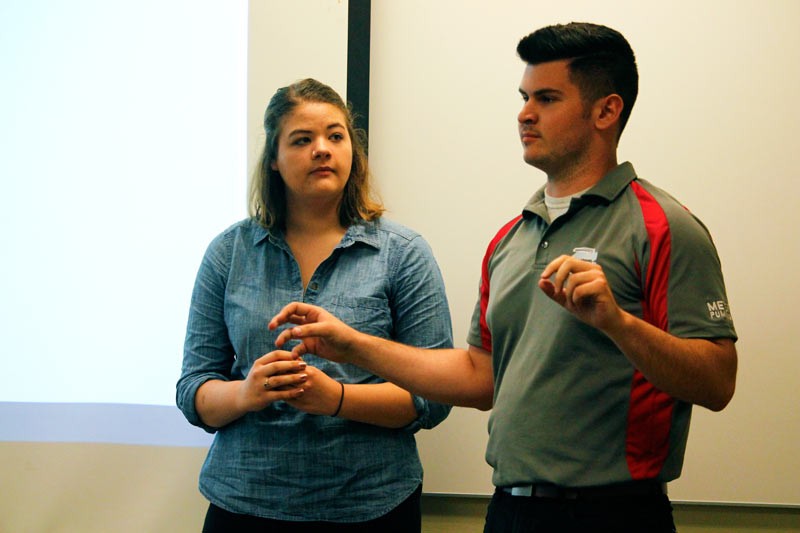
If there were ever a barometer for students’ lack of engagement with their Student Government Association, consider this: For three of the past four SGA elections, candidates for president and vice president have been left unchallenged. This year, all executive and most senator seats are uncontested, and several positions will not be filled.
It’s a problem that could be blamed on DePaul’s notable lack of school spirit, which nearly every SGA leader has attempted to address through similar “campus affinity” initiatives: wearing blue on Thursdays, attending woefully vacant sporting events or making St. Vincent de Paul’s words more visible.
But while students might eschew athletic events or forgo wearing Blue Demon attire, divisive events this year prove that they are engaged with their campus community.
Issues like the so-called “chalkening” sparked a debate on free speech and racial bias; heated online rhetoric divided students over prejudice; a dean tied to a report on government torture launched a public protest; and the university’s handling of sexual assault moved students to push for transparency in the reporting process.
These problems incited reaction from everyone from campus organizations to DePaul’s president. Meanwhile, SGA remained mostly silent.
If SGA wants to engage with its constituents on a campus which begs students to ask, “What must be done?” then it, too, must take action when it’s tough.
At a meeting with The DePaulia, presumed-to-be vice president Megan Scoville said that taking a stance on these issues would mean ignoring the needs and voices of those on the other side. While she said one issue – the appearance of controversial Republican speaker Milo Yiannopoulos later this month – was “disappointing,” SGA’s best course of action on controversial topics would be to direct students to the proper campus resources.
But issues such as race and free speech do not necessarily require a hard stance; students need a mediator to facilitate. Members of College Republicans, the Black Student Union and other groups have said they will meet for months. Regardless of who is to blame for failed dialogue, SGA should step in.
What’s also troubling is that none of the executive candidates interviewed last Thursday said they had ever disagreed with how the university handled issues. Though all of them promised that they are not afraid to disagree with administration if it were in the best interest of students, prior non-action suggests SGA regularly does not act as an independent voice.
For example, when dean of the College of Science and Health Gerald Koocher was implicated in a report alleging he failed to report accusations of torture at Guantanamo Bay during his tenure as an American Psychological Association executive, SGA did not – at least publicly – ask questions or voice concerns. Earlier this year, they welcomed Koocher into their weekly meeting without pressing him.
That’s not to say that SGA does not provide value to DePaul. Its members work tirelessly behind-the-scenes to initiate changes such as eliminating course fees, making course evaluations public, maintaining the Vinny Van shuttle service and advocating for the Monetary Awards Program (MAP) grant, an especially crucial initiative considering the state’s fiscal crisis. They also sit on administrative boards, approve budgets and work with student involvement.
But all of this work is both friendly to the university and fails to act on some of the most pressing issues pertinent to students. If SGA wants to finally connect with those it represents and its campus, it must do more than urge them to wear blue.

